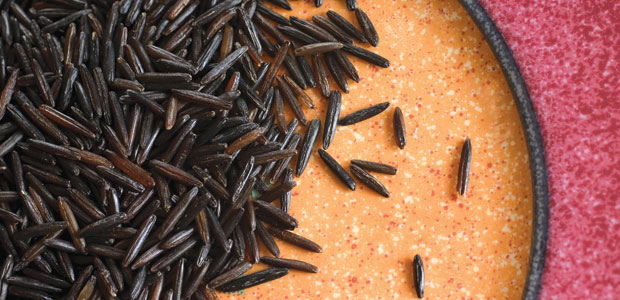Advertisement
Be a Healthy Vegetarian
Not all vegetarian diets are created equal. When I first made the transition to a plant-based diet at the age of 15, I ran into several problems. As I learned more and began to understand the subtleties of a plant-based diet, I saw what mine lacked. What I call the “modern vegetarian diet” is mostly … Continued

Not all vegetarian diets are created equal. When I first made the transition to a plant-based diet at the age of 15, I ran into several problems. As I learned more and began to understand the subtleties of a plant-based diet, I saw what mine lacked.
What I call the “modern vegetarian diet” is mostly built on complex carbohydrates (breads and pasta) and fortified with processed soy products and laboratory-created multivitamins and minerals. It lacks several health-promoting elements. A healthy vegetarian diet emphasizes complete proteins, essential fatty acids, and hearty helpings of vegetables.
Protein Power
Complete protein is vital for muscle regeneration and hormone production; a lack of dietary protein quickly leads to a lack of optimal health. This was one of the problems I encountered when I first adopted a vegetarian diet in 1990. Now, however, chances are slim that vegetarians won’t be able to consume enough protein. The stores are stocked with soy–and gluten-based, high-protein products, such as imitation hot dogs, hamburgers, steaks, and bacon.
Soy and gluten sensitivities are becoming prevalent, as so many processed foods contain these ingredients–more than the body can handle. Resulting in mild flu-like symptoms, fatigue, reduced sleep quality, and sometimes irritability, an over-abundance of soy and gluten in the diet should be avoided.
Instead, opt for as many raw sources of protein as you can. Hemp is an excellent choice. I also suggest sprouted legumes, seeds, grains, and pseudo-grains such as amaranth, quinoa, buckwheat, and wild rice.
The Right Fats
Omega-3 is an essential fatty acid, which means that it must be obtained through the diet; our bodies cannot manufacture it. Without adequate omega-3, the body’s ability to burn body fat can be impaired. Healthy, shiny skin is also, in part, a benefit of getting sufficient dietary omega-3; without it, dry, scaly skin inevitably develops.
Those who eat animal products generally get their omega-3 from fish. However, great vegetarian sources include flaxseeds, salba (a form of white chia), and, to a lesser degree, walnuts.
Going Green
The modern vegetarian may not be getting enough greens. Vitamins and minerals found in a wide assortment of vegetables (and especially green leafy vegetables) are more easily assimilated by the body than those created in a laboratory. Greens are also considered highly alkaline forming in the body, and many green vegetables also contain high amounts of bone-building calcium.
B Smart About It
Did you know that B vitamins are responsible for converting carbohydrates into usable energy? Without an adequate supply of B vitamins, carbohydrates get stored as fat, and the body can become fatigued. Good food sources of B vitamins include leafy greens, pseudo-grains, and legumes.
In my next article (appearing in the August issue of alive), I’ll discuss making the transition to a plant-based diet and whether supplements are needed when undergoing this life-affirming change.





